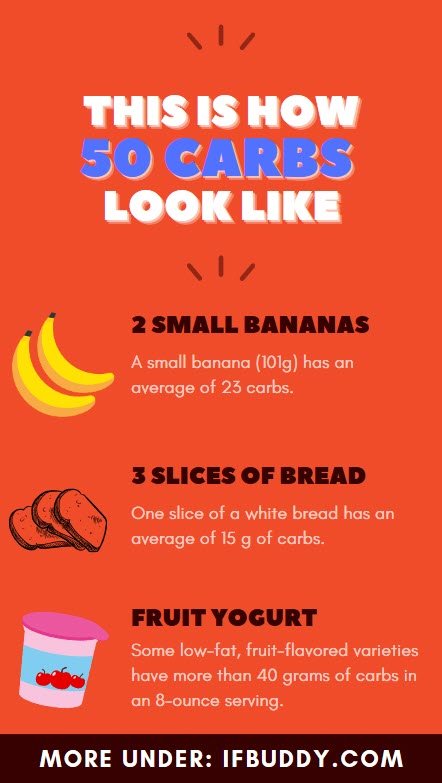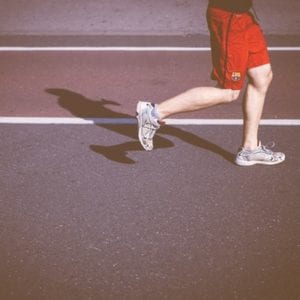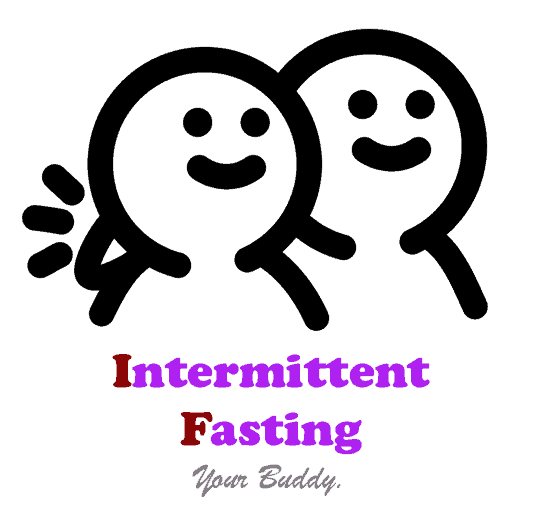If you know about intermittent fasting, chances are good that you’ve also heard about the keto diet. They are both very trendy at the moment, which is why some people are not quite sure which one they should choose. So imagine if you could combine both of them, drop even more pounds, and overall live a better life. One of the key things you need for a successful keto diet is to get into the ketosis state. Therefore, you might be asking yourself: Does Intermittent Fasting Cause Ketosis?
During your fasting phase, your insulin levels are so low, that your body will eventually start to burn fat. By breaking down fat cells your body also generates an end product, which is called ketones. Ketones will then get you into ketosis. So the answer is yes, intermittent fasting does cause ketosis.
But it is not that easy. Many factors determine whether or not you get into ketosis through intermittent fasting. To do that, you should first understand what ketosis is, and why it is so important.
Does Intermittent Fasting Cause Ketosis?
Ketones are produced when you don’t have enough carbs to burn for energy. During your fasted state, insulin levels are low because you are not eating anything. This is what we want. Because having a low insulin level stimulates fat breakdown (fat loss) and will promote our ketone production. Ketones are then used for your brain. This is one of the theories, why so many people claim to have mental clarity while following an intermittent fasting protocol.
Does keto and intermittent fasting work together?
While it is safe for most people, it might now work for everyone. It’s like every other diet: just because it works for you, doesn’t mean it is going to work for others. And for other people keto might just not be the right thing for your lifestyle. If you don’t like to count calories or have to check every food before you can eat it, keto is probably not right for you. You see, keto is a very restricted diet. You need to stay under 50 carbs, no matter whether you do it with or without intermittent fasting.
Doing only intermittent fasting has one big benefit: you are not bound to foods. While you should choose healthy foods, sometimes you can eat something unhealthy (cheat meal). This does not work for keto, because this will instantly put you out of ketosis.
You don’t necessarily have to combine intermittent fasting with keto. But together they are a very powerful tool to generate even more fat loss. This is because both of them encourage the body to use fat for energy instead of glucose (carbs). Therefore, they work great together.
What exactly happens during the ketosis state?
When you don’t have enough carbs to burn for energy, your body turns to Plan B: it starts to instead burn fat. This is what usually happens when we do fasting. We wait until our body burns all the carbs. After there are no more carbs left, your body has no other choice but to start burning fat. We can speed this process up through exercise in the morning. Not only will intermittent fasting burn fat – but it will also create ketones, which is the end product of the fat breakdown. Ketones can then be used to fuel the brain with energy.
Healthy people, that don’t have diabetes or are not pregnant, usually get into the ketosis state after 3-4 days of eating under 50 grams of carbs per day. But this is without intermittent fasting.
Just visualize what 50 carbs look like:

Is ketosis a good thing?
While it does have some side effects, it does not only benefit weight loss. It has also other benefits.
My small cousin, who is 5 years old at the time I write this post, has some epilepsy attacks every now and then. This is because of another health issue she unfortunately has.
Her doctor then put her on a special diet. I didn’t know until a few weeks ago that it was the keto diet. Since she is following this diet, therefore not consuming any high carb foods, she had nearly no attacks. Her mother thinks that she could have eaten some candy while she was unattended, which is why she got a few epilepsy attacks. But overall it is proven, that the keto diet helps to prevent seizures.
But not only that: It also helps to lower the risk of heart diseases, according to this study. At the moment a couple of other studies are being done, to figure out how exactly keto can help. For example with acne, cancer, PCOS, and the nervous system (diseases like Alzheimer).
What are the side effects of the ketosis state?
While ketosis does provide some nice benefits, there are a couple of side effects that you need to know about. You might have experienced some of these while fasting. Various doctors suggest that you can prevent these symptoms the best by drinking a lot of water. I’ve also figured out that drinking water is one of the best ways to prevent these side effects.
Headache, Fatigue, Brain fog, Irritability
These symptoms are very common during ketosis. They happen because you suddenly start eating fewer calories and fewer sugars. Your body needs to adapt – give him some time.
Don’t freak out because I say this, but these symptoms could be a good sign: it shows that you are getting close to the ketosis state (or already are in it). This is a very natural side effect. Electrolyte supplements can help a lot against these symptoms.
Other symptoms are: constipation, trouble sleeping, nausea, stomachache, dizziness, sugar cravings, cramps, sore muscles
Oh, and in case you suddenly experience bad breath, don’t worry. This is completely normal and is also called the “Keto breath”. To combat this side effect, I recommend that you always brush your teeth and always have chewing gum handy.
Another thing is, that ketosis, which is commonly caused by a keto diet or intermittent fasting, can affect breastfeeding. This is why you should not start with a keto diet or intermittent fasting until you have completed your breastfeeding phase.
What do studies say?
Studies show that IF increases body fat loss. Another study has shown, that intermittent fasting helps to prevent muscle loss. This is also helpful in terms of your energy levels. If you follow a keto diet to lose fat or weight, but not necessarily want to lose muscle, intermittent fasting can prevent that.
What you should know before starting keto with intermittent fasting
Carb intake
This is one of the main reasons why people fail with keto or any other low-carb diet. Combining intermittent fasting with keto probably gives you the benefit to enjoy a little bit more carbs, but still – keto is VERY low-carb. Anything over 50 carbs will most likely get you out of ketosis.
According to this study, only 5-10 % of your calorie intake should come from carbs, and anything over that will most likely get you out of ketosis.
There are amazing apps that let you calculate how many carbs are in a food or meal. A quick search in google will deliver you amazing results. An app that I can recommend is MyFitnessPal.
Choosing foods and meals will get harder, but not impossible
A keto diet will restrict you in terms of choosing foods. Pasta for example will be a thing of the past once you start with keto. Doing intermittent fasting without keto gives you the benefit to choose from more foods.
Keto will restrict you on things like:
- Seafood
- Low-Carb veggies
- Cheese (You can eat A LOT of it if you want)
- Avocados
- Meat
- Eggs
- Yogurt
- Nuts
- …
Overeating
This is a common mistake with intermittent fasting, but you might forget it because you’re so focused on finding and eating the right foods once you start with keto. But this is very important since overeating will eventually make you gain weight instead of losing it.
Impossible expectations
Alright, I was one of those. I experimented with intermittent fasting and keto combined myself and expected unrealistic stuff happening. I mean both lead to fat loss, so it should double, right? Well, no. The longer you follow it, the faster you will see your weight go down. Just be patient. And don’t expect results to double, because they won’t.
No physical activity
If you have a very physical job, you can ignore this.
But for everyone else that works in a bureau or goes to school, you need to have some form of physical activity. Building an exercise routine can be difficult, especially if you’ve never had one before. That’s why I recommend that you start slow, rather than starting with 4 times a week. Start with something you can easily stick to. Set a goal, and over time add more exercises. In the first week, you might only go jogging for once, in the third week twice, and after two months you go three times every morning. If you want to build muscle, hitting the gym is another great idea, since this will give your metabolism a boostand increase the amount of energy that is burned during your resting phase.
Conclusion
Alright, let’s summarize the post. Two main factors can generate ketones and therefore put you into ketosis: the keto diet, and intermittent fasting.
Do you need to follow a keto diet next to intermittent fasting? No, you can do IF alone and enjoy the benefit when it comes to choosing what to eat. IF works perfectly fine alone, especially with good nutrition and a good schedule. If you want faster results though, keto may be a good choice.

